New advanced laboratories pave the way for immunology research
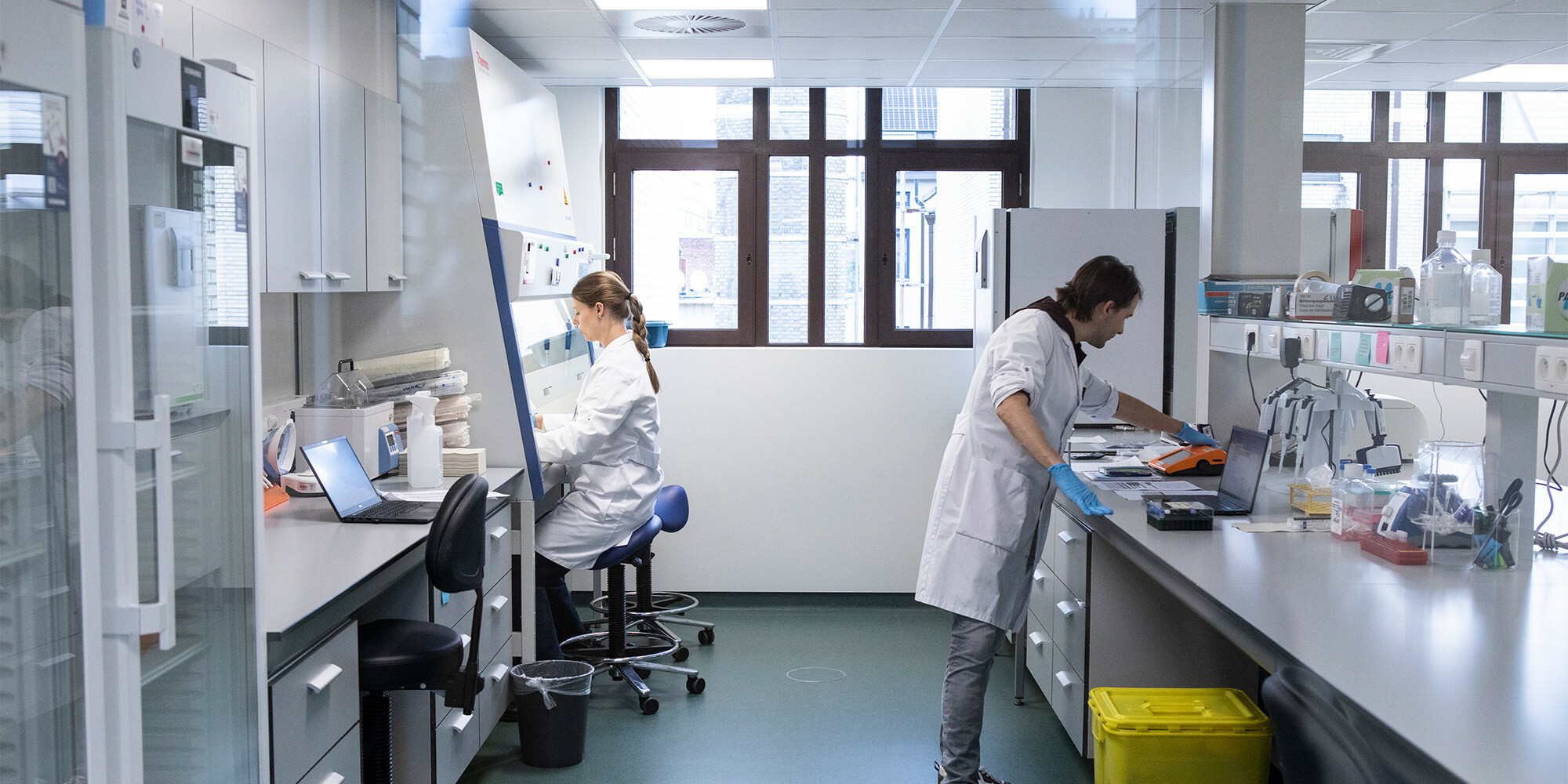
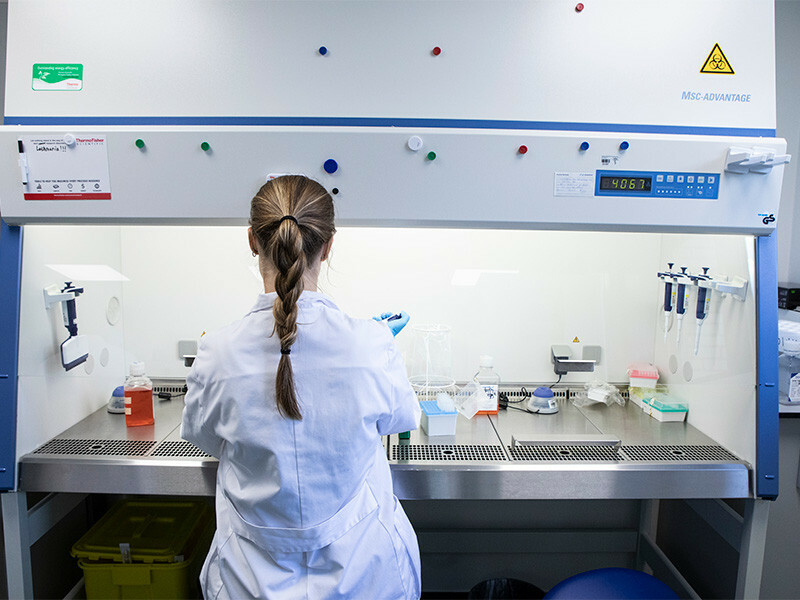
Over the years, ITM has established itself as a global centre of excellence in emerging infectious diseases and epidemic preparedness. This was demonstrated through our role in combatting the COVID-19 pandemic and, more recently, the mpox outbreaks in Central Africa and Belgium. Global health crises like these underscore the importance of immunological research, which addresses key questions in diagnostics and therapies.
Strategic investments are necessary to remain at the forefront of science and education. Our immunology laboratories were in need of a renewal to meet modern standards. Thanks to funding from the Department of Economy, Science and Innovation (EWI) of the Flemish Government, we were able to renovate the previous immunology laboratory and create space for two new research labs. The refurbished space enables our Units of Clinical Immunology and Experimental Immunology, headed by Dr Wim Adriaensen and Dr Maria Luísa Simões, respectively, to conduct and support cutting-edge research in patient and vector immunology.
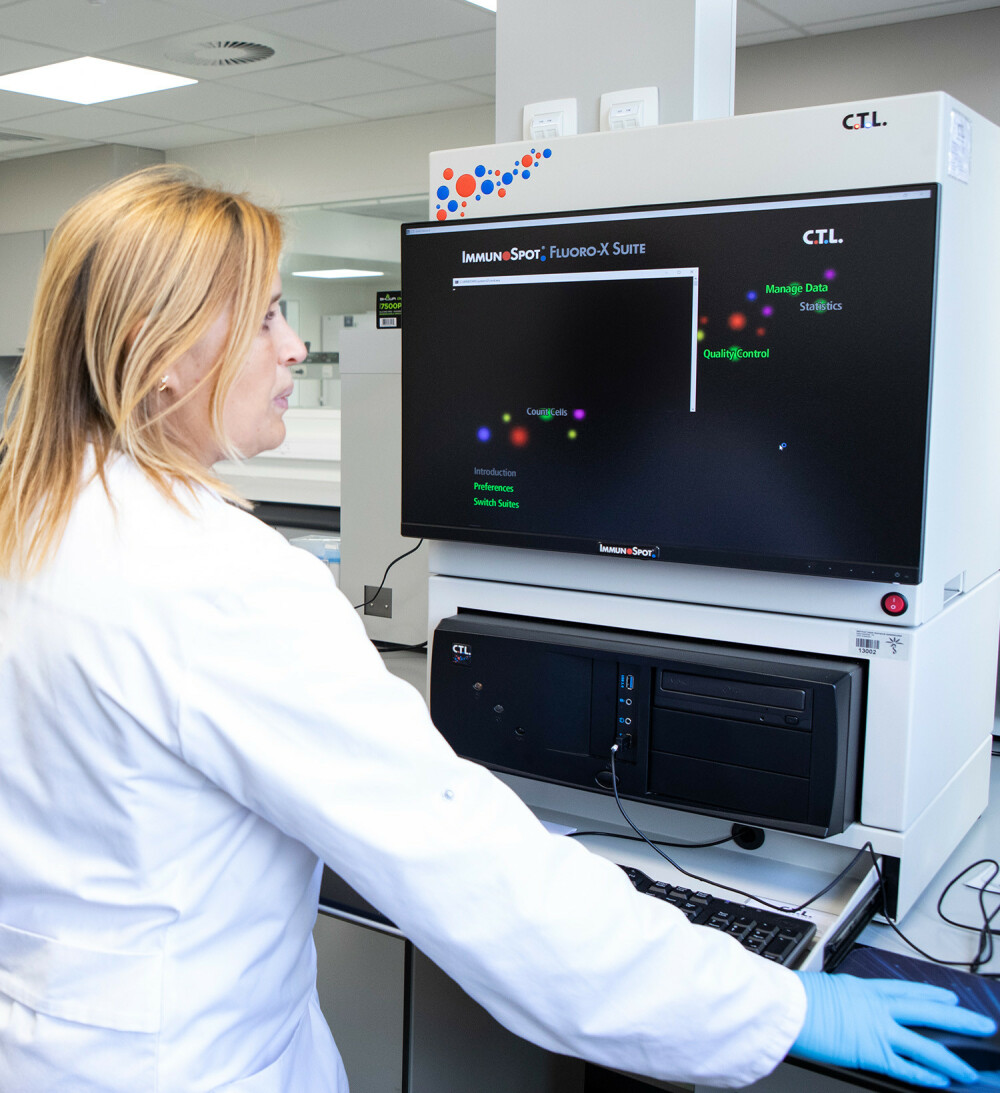
The protective human immune response to challenging and newly emerging pathogens
How does the human immune system respond to complex protozoa and newly emerging pathogens? Can we find the specific immune responses that protect against diseases, so we can focus on them for vaccines, treatments, or diagnostics? These are the core challenges addressed by our Unit of Clinical Immunology. Dr Wim Adriaensen and his team explore a wide range of research areas, including a new approach to vaccine development for organisms that hide inside cells (e.g., leishmaniasis), the role of skin imprinting in vaccine-induced responses as a critical factor for protection against vector-borne diseases, and the evaluation of much-needed booster vaccination schedules against Ebola virus disease to ensure optimal protection in future outbreaks.
By conducting and supporting numerous clinical trials and studies, they developed broad expertise in human immunosurveillance techniques that are taught within the new Patient Immunomonitoring (PIM I and PIM II) courses. The renovated laboratory, with mirroring labs in several of our partnering countries, enables a spacious and optimal environment to design and transfer the required assays to our partner institutions and PIM participants.
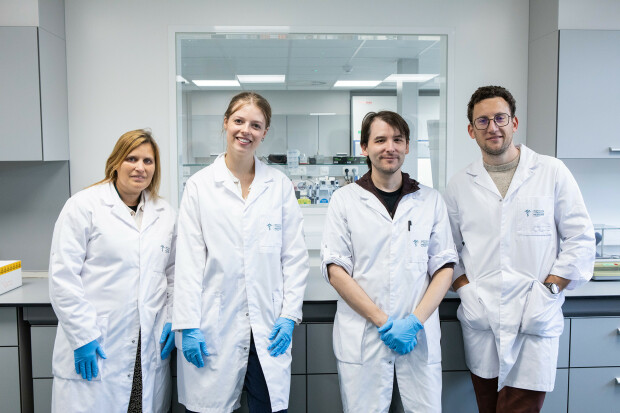
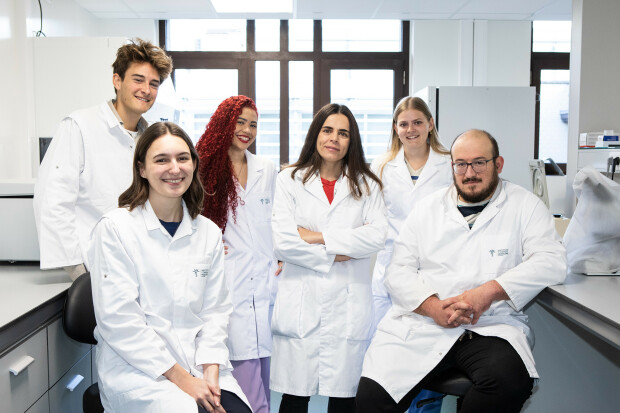
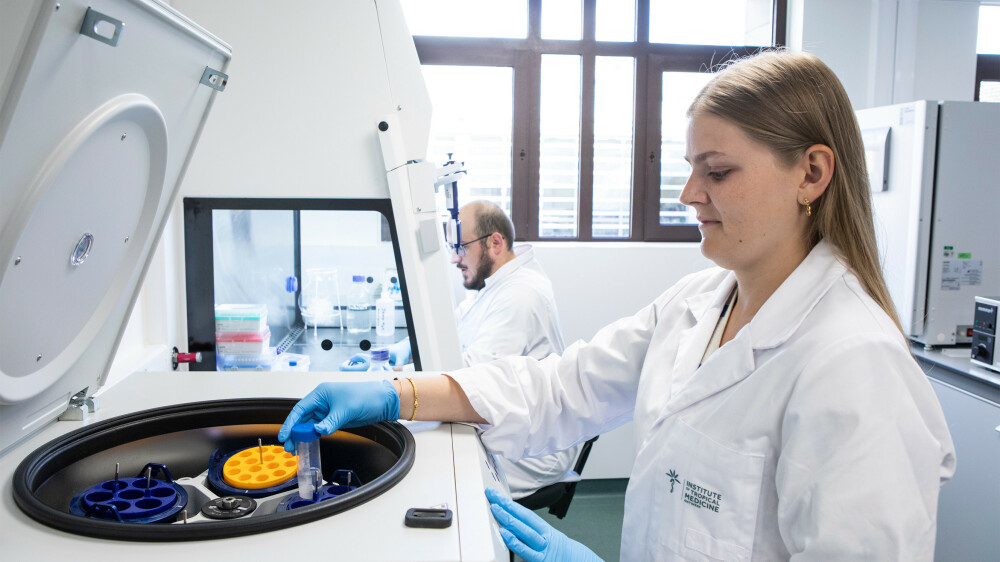
Targeting malaria: vector immunity and genetic strategies
Malaria, caused by Plasmodium parasites transmitted by Anopheles mosquitoes, remains a major global health threat. Despite past and present efforts, new strategies are still needed to control this devastating disease. Although mosquitoes do not have adaptive immune systems, their innate immune system plays a crucial role in managing pathogens’ infections, including malaria parasite infection. Recent advances in genetic research on Anopheles mosquitoes have led to the targeting of mosquito innate immunity factors for the development of vector-based control genetic strategies for malaria.
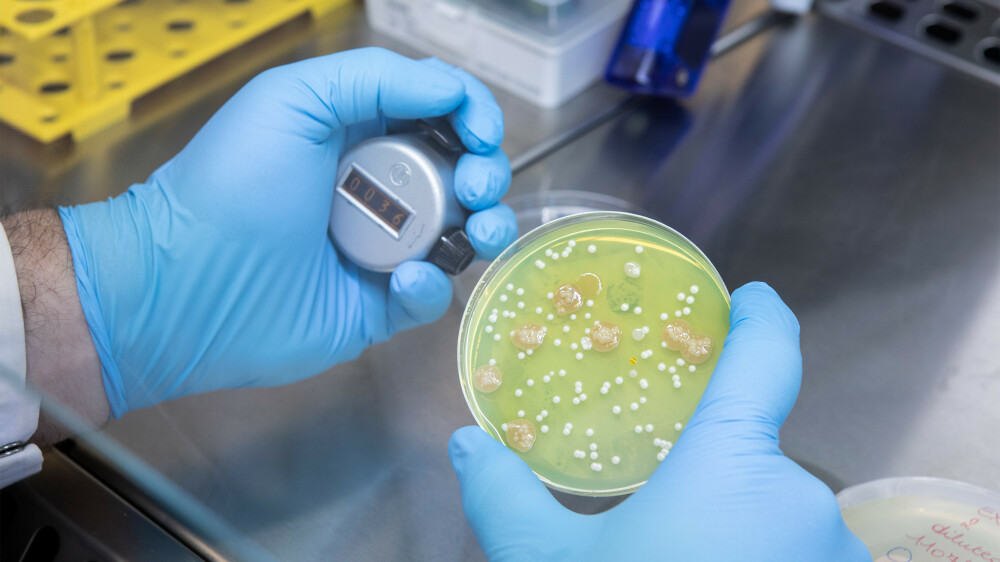
Dr Maria Luísa Simões is among the leading scientists in these studies, with her research highlighted in Nature in 2023. At ITM, she and her newly established (2023) team are dedicated to exploring how biotic and abiotic factors—such as pathogens and climate change—impact the immune responses of Anopheles mosquitoes and how this knowledge can be used to harness malaria transmission. Our Experimental Immunology Unit is unique in Belgium for its focus on the innate immunity of malaria vectors. The newly refurbished and spacious laboratory will allow Dr Simões’ team to expand both its research activities and members, and welcome students and visiting fellows.
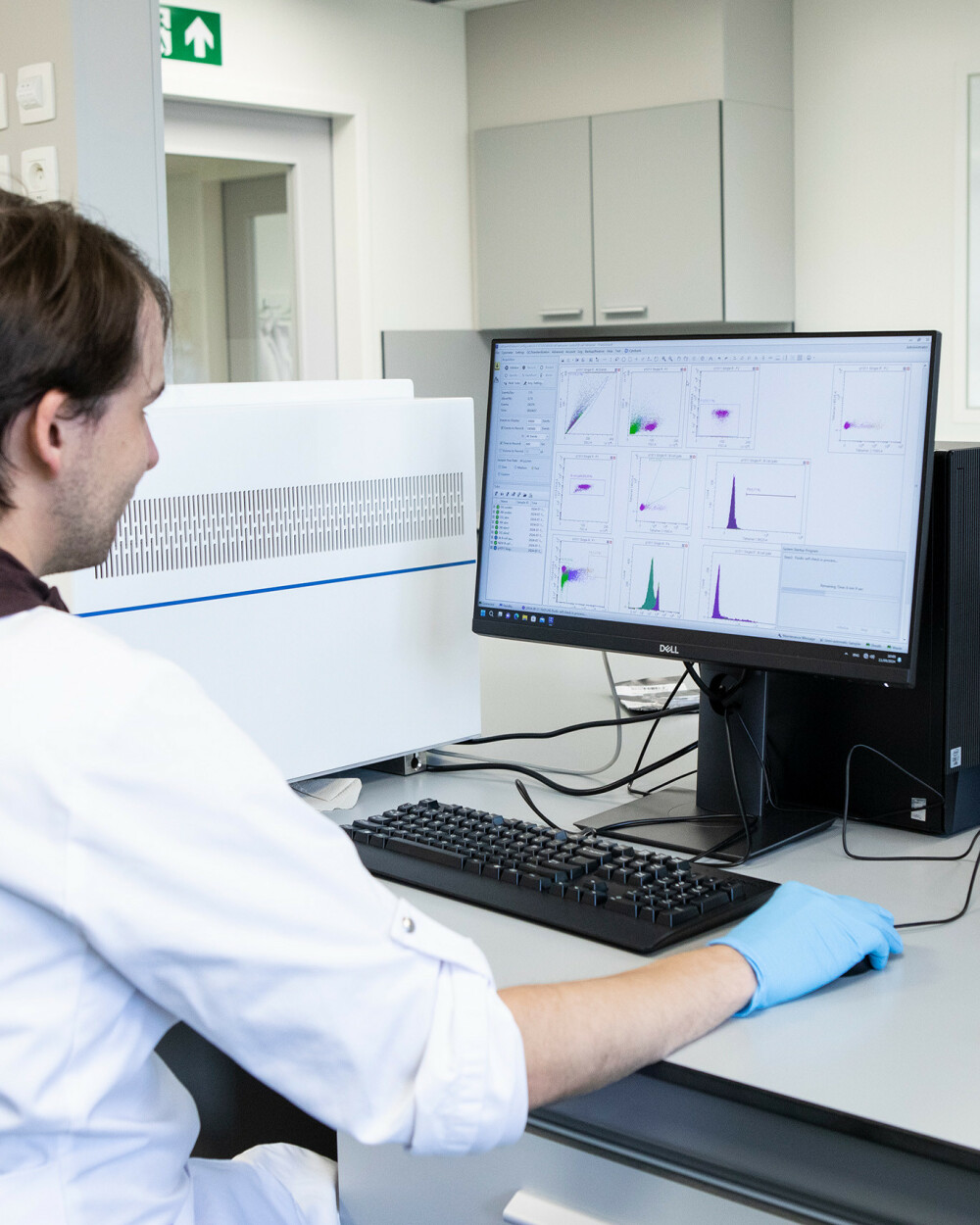
Boosting capacity and collaboration through cutting-edge equipment
The new laboratories provide our immunology units with cutting-edge facilities, including improved air quality, expanded BSL-2 capacity, and more efficient workflows. These renovations lay a strong foundation for the future growth of both immunology units. Additionally, the interdepartmental integration of the two units in a shared space fosters the exchange of ideas and knowledge, and helps break down some of the (physical) barriers between our Departments of Biomedical and Clinical Sciences. “Because immunology is a transversal theme across many of our units, we wanted to create a core facility with advanced cell imaging equipment to support the study of many pathogens and make it more accessible to many other users, both within ITM and beyond,” explains Dr Adriaensen.
Along with basic equipment upgrades, a larger and more advanced flow cytometer has been added, replacing the outdated model. The new CytoFlex LX can measure over 20 parameters on single cells simultaneously, with plans to further expand its capabilities by adding a cell sorter in the near future. This investment future-proofs the lab and opens up unique possibilities for cell isolation and characterisation of BSL-2 requiring pathogens.
The opening of the new laboratories marks a significant milestone in our commitment to advance immunology research and education. With state-of-the-art equipment and a collaborative research environment, we are well-positioned to face the most pressing global health challenges, from malaria to emerging infectious diseases. As both the Clinical and Experimental Immunology Units expand their research horizons, we remain committed to pushing the boundaries of science and improving health outcomes worldwide.
Curious to see for yourself? Watch the video and take a look inside our new labs!
Spread the word! Share this story on









